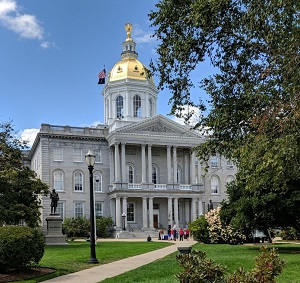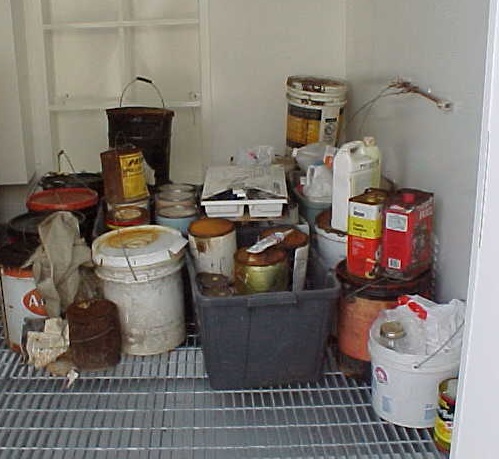Household Hazardous Waste
Encouraging the reduction and proper management of hazardous products in our homes.
New Hampshire’s population of 1.4 million has almost doubled since 1970; the year of the first Earth Day. New Hampshire residents purchase millions of dollars’ worth of household products such as cleaners, pesticides and electronic devices that make our lives easier, safer and more enjoyable. The decision to purchase one product over another is generally determined by its price and effectiveness with media advertising being the primary source of such information. Unfortunately, consumers are not always aware of the toxic nature of these products nor do they fully consider the possible environmental or health effects resulting from their use and disposal.
When stored or used improperly, product vapors may react with the chemicals in another product creating toxic gases, poisonings and even fires. Every day, products like drain cleaners, medications, pesticides, bleaches and fluorescent lamps are thrown into the household trash where they are free to come in contact and react with each other. Even if the chemicals in these products don’t react in the garbage, their disposal as solid waste could allow them to leak into the environment where they would contaminate the air we breathe and water we drink.
Guidance for Households
The NHDES Household Hazardous Waste Program provides resources and education for New Hampshire residents on the purchase, use and disposal of hazardous products and also by helping municipalities to fund Household Hazardous Waste (HHW) collection events across the state.
The time most residents start to clean out hazardous substances from their homes is when they are selling their homes. As they dig deeper into closets, the basement, and garage, these items mount up – leftover paint, unused insect spray, gasoline for the lawnmower, pool chemicals and more. Our “Help! I’m Moving” brochure provides helpful guidance on how to dispose of the common things found in our homes. Other things to look out for are smoke detectors, batteries and fluorescent bulbs. Find more guidance at the link below.
Guidance for Municipalities
 Matching grants for municipalities
Matching grants for municipalities
The HHW Program provides grant funds to municipalities that support more than 60 annual HHW collection events across the state. To help communities and their municipal solid waste facilities manage homeowner generated hazardous wastes, the State of New Hampshire administers a Household Hazardous Waste grant program. HHW Collection Grants are awarded to eligible municipalities at a designated per capita rate for the communities served. NHDES also issues gift grants for the purpose of encouraging the establishment, improvement and operation of used oil collection centers that serve residents who change their own oil (aka “Do-It-Yourselfers”). The used oil that is collected at these centers is then properly recycled at licensed used oil recycling facilities.
 Requirements for grant applications
Requirements for grant applications
These forms and documents will help municipalities navigate the grant process:
Medicine Disposal
Improper handling, storage or disposal of medicine can lead to drug abuse, accidental poisonings and environmental pollution. NHDES provides guidance about proper disposal, and supports the DEA's National Drug Takeback Program.




